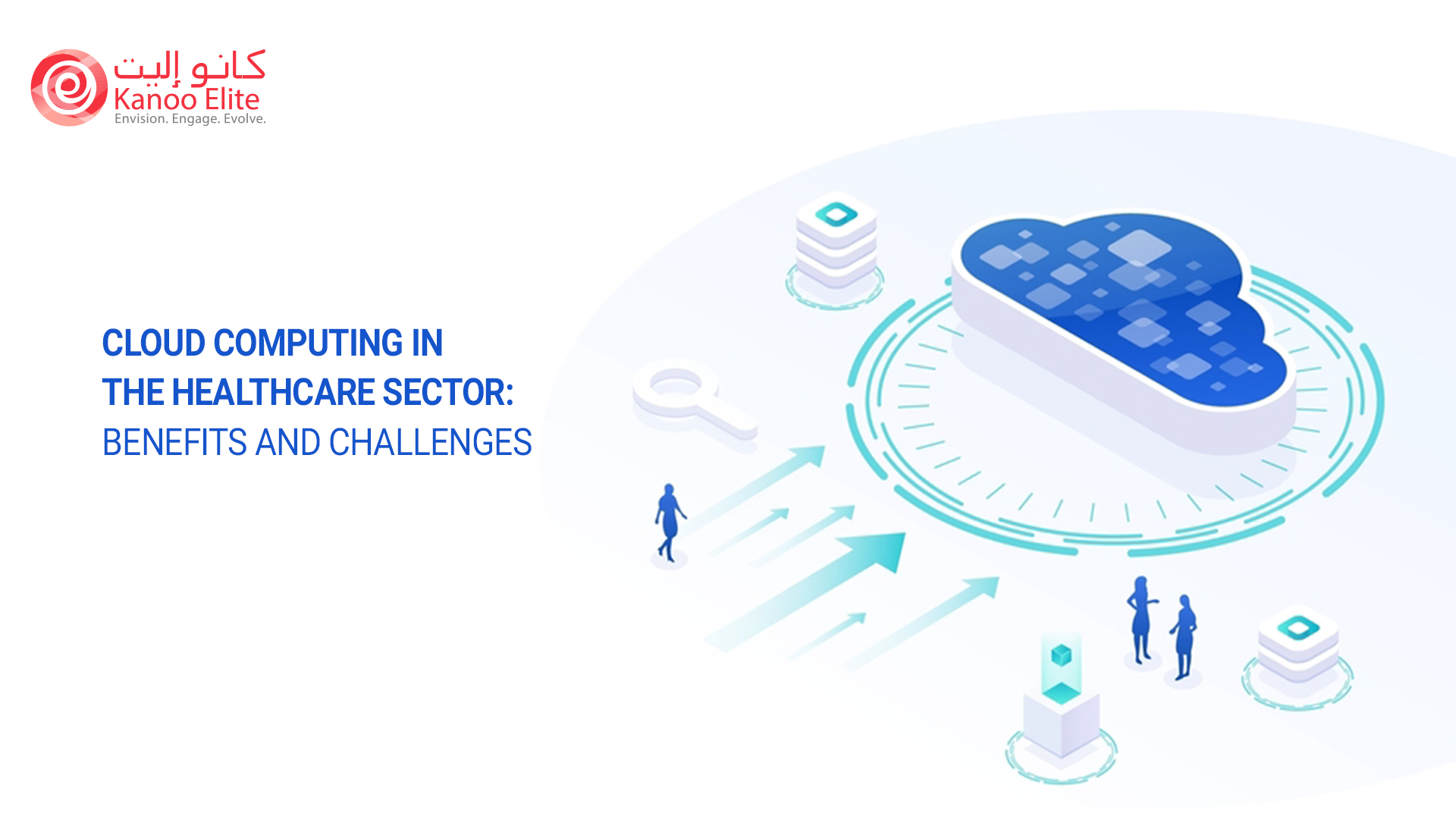In the rapidly evolving landscape of healthcare, technological advancements have become a cornerstone in enhancing patient care, operational efficiency, and medical research. Among these advancements, cloud computing has emerged as a transformative force, offering numerous benefits while presenting its own set of challenges. This blog explores the multifaceted impact of cloud computing in the healthcare sector, delving into its advantages and the obstacles healthcare organizations face in adopting this technology.
Understanding Cloud Computing in Healthcare
Cloud computing refers to the delivery of computing services—servers, storage, databases, networking, software, analytics, and intelligence—over the internet (the cloud) to offer faster innovation, flexible resources, and economies of scale. In the context of healthcare, cloud computing enables the storage and access of vast amounts of data, including patient records, medical images, and research data, through remote servers rather than on-premises data centers.
Benefits of Cloud Computing in Healthcare
1. Enhanced Data Storage and Management
One of the most significant benefits of cloud computing in healthcare is the enhanced capacity for data storage and management. Healthcare organizations generate immense amounts of data daily, from electronic health records (EHRs) to medical imaging files. Traditional on-site data storage solutions often struggle to keep up with this volume, leading to inefficiencies and potential data loss.
Cloud computing offers scalable storage solutions that can grow with the needs of the organization. This flexibility ensures that healthcare providers can store and manage their data effectively, without the limitations of physical storage space. Additionally, cloud storage solutions often come with built-in redundancy and backup capabilities, ensuring data is safe and accessible even in the event of hardware failures or disasters.
2. Improved Collaboration and Information Sharing
Cloud computing facilitates improved collaboration and information sharing among healthcare professionals. With cloud-based systems, healthcare providers can access patient records and other critical information from any location with an internet connection. This accessibility is particularly beneficial in multi-site healthcare organizations, where seamless communication between different locations is essential for coordinated patient care.
Moreover, cloud computing supports real-time collaboration, enabling multiple healthcare professionals to work on the same document or patient file simultaneously. This capability is crucial for situations that require immediate attention and collaboration, such as during surgeries or when developing treatment plans for complex cases.
3. Cost Efficiency
Adopting cloud computing can lead to significant cost savings for healthcare organizations. Traditional IT infrastructure requires substantial upfront investments in hardware, software, and maintenance. In contrast, cloud computing operates on a subscription-based model, allowing healthcare organizations to pay for only the resources they use.
This pay-as-you-go model reduces capital expenditures and shifts costs to operational expenditures, making budgeting more predictable. Additionally, cloud service providers handle the maintenance and upgrading of the infrastructure, further reducing the financial and administrative burden on healthcare organizations.
4. Enhanced Security and Compliance
Data security is a paramount concern in the healthcare sector, given the sensitivity of patient information. Cloud computing providers invest heavily in security measures to protect data from breaches and cyberattacks. These measures often include encryption, advanced firewalls, intrusion detection systems, and regular security audits.
Furthermore, reputable cloud service providers comply with healthcare regulations such as the Health Insurance Portability and Accountability Act (HIPAA) in the United States or the General Data Protection Regulation (GDPR) in Europe. This compliance ensures that healthcare organizations meet legal requirements for data protection and patient privacy.
5. Advanced Analytics and Insights
Cloud computing enables healthcare organizations to leverage advanced analytics and gain valuable insights from their data. By utilizing cloud-based analytics tools, healthcare providers can analyze large datasets to identify trends, predict patient outcomes, and improve clinical decision-making.
For instance, predictive analytics can help identify patients at high risk of developing certain conditions, allowing for early intervention and personalized treatment plans. Additionally, cloud-based machine learning algorithms can assist in diagnosing diseases, analyzing medical images, and discovering new treatment options.
6. Telemedicine and Remote Patient Monitoring
The rise of telemedicine and remote patient monitoring has been accelerated by cloud computing. Cloud-based platforms allow healthcare providers to offer virtual consultations, reducing the need for in-person visits and expanding access to care, particularly in rural or underserved areas.
Remote patient monitoring devices can collect and transmit patient data to cloud servers, where healthcare providers can monitor vital signs and other health metrics in real-time. This continuous monitoring enables timely interventions and enhances the management of chronic conditions, ultimately improving patient outcomes.
Challenges of Adopting Cloud Computing in Healthcare
Despite the numerous benefits, adopting cloud computing in healthcare also presents several challenges that need to be addressed to ensure successful implementation.
1. Data Security and Privacy Concerns
While cloud service providers implement robust security measures, data security and privacy remain significant concerns for healthcare organizations. The risk of data breaches, unauthorized access, and cyberattacks persists, and any compromise of patient data can have severe consequences.
Healthcare organizations must ensure that their cloud service providers adhere to stringent security standards and conduct regular audits to identify and mitigate vulnerabilities. Additionally, they must implement strong internal security policies and educate staff on best practices for data protection.
2. Compliance with Regulations
Healthcare is one of the most regulated industries, and compliance with various laws and regulations is a critical challenge when adopting cloud computing. Different regions have different regulatory requirements, and healthcare organizations must ensure that their cloud solutions comply with all applicable laws.
For example, in the United States, healthcare organizations must comply with HIPAA regulations, which dictate how patient information should be stored, accessed, and shared. In Europe, GDPR sets strict guidelines for data protection and privacy. Navigating these regulatory landscapes can be complex, and failure to comply can result in hefty fines and reputational damage.
3. Data Interoperability
Data interoperability is a significant challenge in healthcare, where information is often siloed in different systems and formats. Cloud computing can exacerbate this issue if not implemented correctly, as data from various sources need to be integrated seamlessly.
To address interoperability challenges, healthcare organizations must adopt standardized data formats and protocols that facilitate data exchange between different systems. Interoperability ensures that healthcare providers have access to comprehensive and accurate patient information, enabling better clinical decision-making.
4. Latency and Downtime
Latency and downtime are critical concerns in healthcare, where timely access to information can be a matter of life and death. Cloud-based systems rely on internet connectivity, and any disruption in service can impede access to critical data and applications.
Healthcare organizations must work with cloud service providers to ensure robust and reliable internet connections and implement redundancy measures to minimize the risk of downtime. Additionally, they should have contingency plans in place to handle potential service disruptions.
5. Resistance to Change
The adoption of cloud computing often requires significant changes in workflows and processes, which can be met with resistance from staff. Healthcare professionals may be hesitant to adopt new technologies, fearing that it will disrupt their routines or compromise patient care.
To overcome resistance to change, healthcare organizations must invest in comprehensive training and support for staff. Demonstrating the benefits of cloud computing and involving staff in the decision-making process can help build trust and encourage acceptance of the new technology.
6. Vendor Lock-In
Vendor lock-in is a concern when adopting cloud computing, as it can be challenging to switch providers or migrate data once a particular cloud solution is implemented. This dependence on a single vendor can limit flexibility and potentially lead to higher costs over time.
To mitigate the risk of vendor lock-in, healthcare organizations should carefully evaluate their cloud service providers and consider solutions that offer interoperability and data portability. Additionally, they should negotiate clear terms in their contracts to ensure they have the flexibility to switch providers if needed.
Future Trends in Cloud Computing for Healthcare
As cloud computing continues to evolve, several trends are likely to shape its future in the healthcare sector.
1. Increased Adoption of Artificial Intelligence and Machine Learning
Artificial intelligence (AI) and machine learning (ML) are poised to play a significant role in the future of cloud computing in healthcare. Cloud-based AI and ML tools can analyze vast amounts of data to identify patterns, predict outcomes, and support clinical decision-making. These technologies have the potential to revolutionize diagnostics, treatment planning, and personalized medicine.
2. Expansion of Telehealth Services
The COVID-19 pandemic has accelerated the adoption of telehealth services, and this trend is expected to continue. Cloud computing provides the infrastructure needed to support telehealth platforms, enabling remote consultations, virtual visits, and remote patient monitoring. As telehealth becomes more mainstream, cloud solutions will be essential in ensuring seamless and secure access to care.
3. Enhanced Data Interoperability
Efforts to improve data interoperability in healthcare will continue to be a priority. Cloud computing can facilitate the integration of data from various sources, enabling healthcare providers to access comprehensive and accurate patient information. Standardized data formats and protocols will be crucial in achieving true interoperability and enhancing care coordination.
4. Focus on Cybersecurity
As cyber threats continue to evolve, cybersecurity will remain a top priority for healthcare organizations adopting cloud computing. Cloud service providers will invest in advanced security measures to protect data from breaches and cyberattacks. Healthcare organizations must also prioritize cybersecurity training and awareness for their staff to mitigate risks.
5. Personalized Medicine
Cloud computing will play a vital role in advancing personalized medicine, where treatments and interventions are tailored to individual patients based on their genetic makeup, lifestyle, and other factors. Cloud-based platforms can store and analyze large datasets, including genomic data, to identify personalized treatment options and improve patient outcomes.
Conclusion
Cloud computing has the potential to revolutionize the healthcare sector by enhancing data storage and management, improving collaboration, reducing costs, and enabling advanced analytics. However, adopting cloud computing also presents challenges, including data security and privacy concerns, regulatory compliance, and data interoperability.
By addressing these challenges and leveraging the benefits of cloud computing, healthcare organizations can enhance patient care, streamline operations, and drive innovation in medical research. As technology continues to evolve, cloud computing will undoubtedly play a central role in shaping the future of healthcare, enabling more efficient, effective, and personalized care for patients worldwide.



